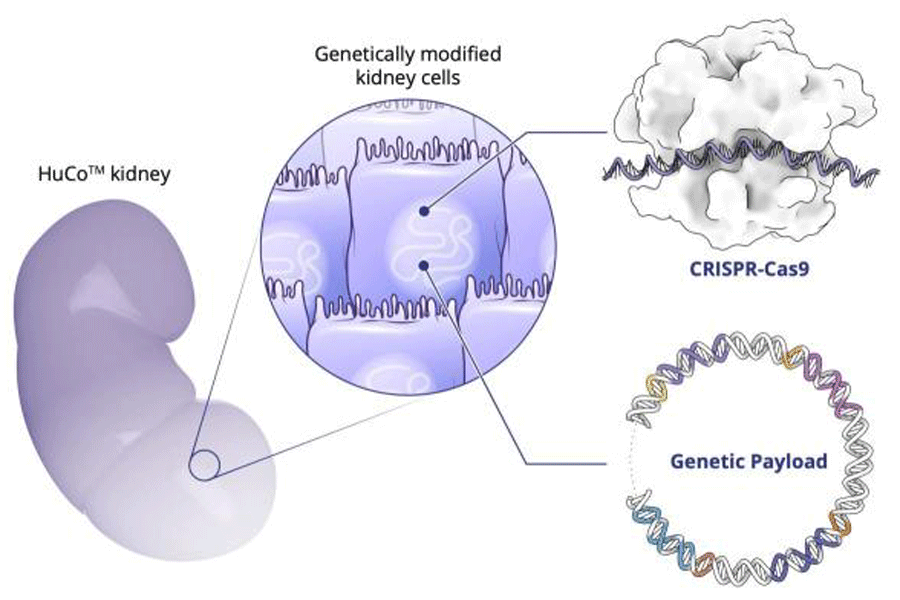Scientists have transplanted kidneys from genetically engineered pigs into lab monkeys and observed them functioning well for up to two years, in a landmark study that they said had demonstrated the promise of using pig organs for human transplantation.
The study shows for the first time long-term survival and sustained functioning of transplanted “human compatible” pig kidneys in non-human primates, a consortium of industry and academic researchers in the US announced on Wednesday. One monkey that received the transplant survived for 758 days.
Their feat has relied on advances in genome engineering — specifically, a technology called gene editing — and bolstered hopes of using pigs as a source of human organs, a long-standing quest stymied primarily by the human immune system’s rejection of animal organs.
“Our human-compatible organs offer hope of a new donor source for hundreds of thousands of people in need of life-saving organs,” said Michael Curtis, chief executive officer at eGenesis, a biotechnology firm in Cambridge, Massachusetts, that led the research.
Scientists say the study, published as a paper in the scientific journal Nature on Wednesday, will provide critical data that regulatory authorities are expected to examine as part of a process to approve the first clinical trials of such human-compatible organs.
The paper “shows it is time for clinical translation of this vital technology,” Muhammad Mohiuddin, the director of the cardiac xenotransplantation programme at the University of Maryland School of Medicine who was not associated with the study, wrote in the same issue of Nature.
Doctors estimate that hundreds of thousands of people worldwide face life-threatening organ failure but are unable to receive organs because demand outstrips the supply. In the US, less than 40 per cent of more than 100,000 people on the organ transplant waitlist will receive a potentially life-saving organ.
The fraction of the patients who receive transplants in India is even smaller. A gastrointestinal surgeon had estimated last year that the number of patients with liver failure in the country exceeds 20,000, but less than 2,500 liver transplants are performed annually. Another doctor estimated that around 200,000 patients face kidney failure each year, but kidney transplant counts are less than 15,000.
The US research team introduced 69 genomic edits into a Yucatan miniature pig. Some edits were designed to knock out — inactivate — pig genes that induce immune system rejection, others overexpressed human transgenes to reduce hostility of the primate immune system, and a third set inactivated all copies of a retrovirus gene embedded within the pig genome.
The scientists introduced the kidneys from the genetically engineered pig into a cynomolgus monkey — also called the crab-eating monkey with several human-like traits widely used in medical research. When combined with immunosuppressive treatment at levels that could be translated into humans, the transplant provided long-term primate survival of up to 758 days.
“This is a major step forward for the field of transplantation,” said Tatsuo Kawai, professor of surgery at the Harvard Medical School. “One of the biggest (challenges) has been the long-term survival of the genetically-engineered organ in the non-human primate recipient. These results demonstrate remarkable progress in editing the porcine genome to minimise rejection. We anticipate that transplant outcomes in humans will be even better as the gene-edited organs are a better match for humans than for non-human primates.”
Medical researchers have viewed pigs as potential organ donors for years, given their human-compatible size of organs and other anatomical similarities. But overcoming immune rejection of pig organs by the human immune system has presented a challenge for over 40 years, Mohiuddin said.
Curtis said eGenesis is also working on developing human-compatible livers and hearts that might be ready for clinical trials even before the kidneys. Researchers at the Harvard Medical School, the Duke University Medical Centre, and the Wisconsin National Primate Research Centre among other institutions were members of the study team.










